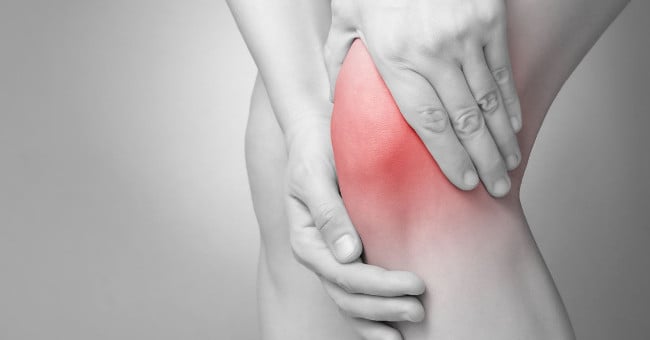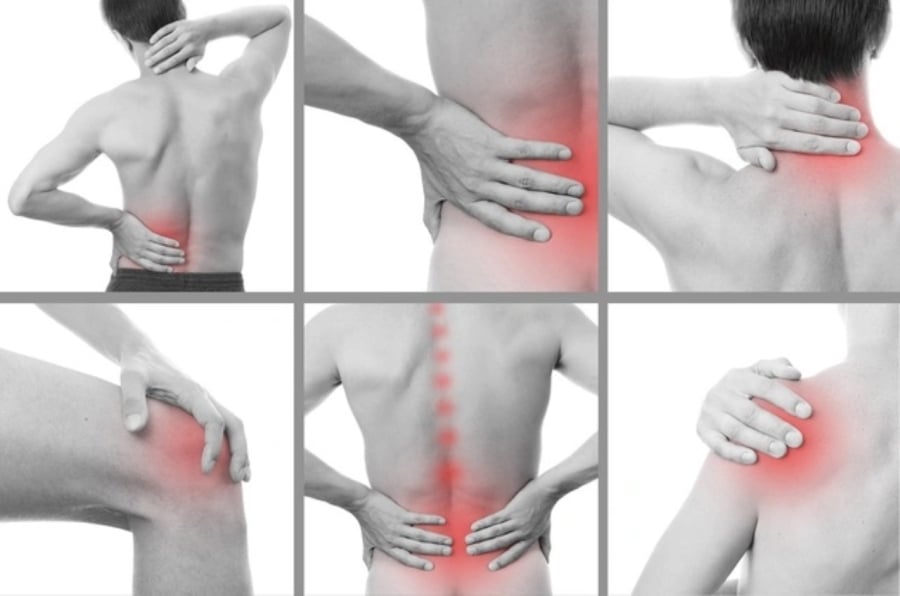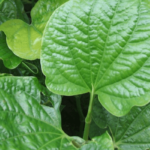According to medicine, the culprit of this phenomenon is the cold weather, which makes the nerve fibers in the human body more sensitive than usual.
When it’s cold, our blood vessels constrict, causing more blood to flow to internal organs to keep warm, while less blood flows to the extremities like fingertips, toes, and ears. As a result, the outer layer of skin becomes harder, exerting pressure on the already sensitive nerve fibers in cold weather, making us feel more pain than normal when injured.
In addition, in cold weather conditions, the muscles in the human body contract and become stiffer and less flexible, making them more prone to injuries.

Why do many people experience joint pain in cold weather?
For some people, every time cold air comes in, they experience back pain, joint pain, neck pain… They can even predict cold weather based on their own pain sensations, and the lower the temperature, the worse the pain becomes. According to medicine, all those symptoms are called cold-induced pain disorders.
The reason is that the low temperature causes changes in the thickness of joint fluid, causing tissues to contract and pull on nerve endings, resulting in joint pain. When the air pressure decreases and is not strong enough to keep the tissues in the right position, the sensitive tissues become swollen.
In particular, neck pain and joint pain
Whenever cold air comes in, we experience back pain, joint pain, and neck pain to the point of suffering. The cold weather makes those who already have pain suffer even more. In fact, some people can predict cold weather just by sensing their own pain.

That is a symptom called cold-induced pain disorder. People who already have symptoms such as pain, joint inflammation, back pain, or other symptoms will feel much worse in this extreme cold.
Some studies have found correlations between cold days and prolonged joint pain. Among them, some studies have shown that the cold causes changes in the thickness of joint fluid. The low temperature causes tissues to contract and pull on nerve endings, resulting in joint pain.
As the weather gets colder, the nerve endings become more sensitive, and the muscles around the nerve fibers become stiffer. When the air pressure decreases and is not strong enough to keep the tissues in the right position, the sensitive tissues become swollen, and that is why cold weather causes joint pain.
How to reduce severe pain in freezing weather
- Keep the body warm to prevent muscle and internal nerve bundles from stiffening.
- Stretch and exercise in the morning when waking up and in the evening before going to bed to help relax the muscles after hours of activity or maintaining a posture for a long time.
- Exercise regularly to keep the joints flexible. In cold weather, you can exercise indoors.
- Swim in warm water, which is a therapeutic method that helps reduce pain in the neck, back, and joints.
How to Make Sure You Buy the Perfect Mattress for Optimal Sleep and Health
Want to know the essentials of selecting a quality mattress that will give you a peaceful night’s sleep and boost your health? Look no further! This article provides all the key advice for finding a mattress that suits your specific needs and ensures you get a well-deserved rest. Get the important information you need to make the perfect mattress choice right here.
Unlock Benefits of Meowington’s Meow-tastic Feline Elixir for an Exciting Feverish High
Vietnamese people’s fondness for mangoes is well-known, and they are more than just delicious tropical fruit. Not only do mangoes boast a sweet and sour taste that make them popular for both snacking and cooking, but they also offer a host of health benefits to those who consume them. Originating from Africa, mangoes are now widely grown in both Asia and Latin America.
Indian Expert Shares Back Pain Relief Tips
In the fast-paced life with constant commuting and the aging process, back pain has become a common problem. Health experts from India have identified several ways to alleviate back pain.





































